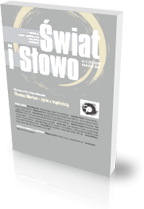Truth and lie in literature: Slovene writers sued for slander
Truth and lie in literature: Slovene writers sued for slander
Author(s): Aleksander BjelčevičSubject(s): Law, Constitution, Jurisprudence, Civil Law, Slovenian Literature, Philology, Theory of Literature
Published by: Akademia Techniczno-Humanistyczna w Bielsku-Białej
Keywords: literature;defamation;fiction;lie;possible worlds;counterparts;trans-world identity;
Summary/Abstract: In 1999 novelist Breda Smolnikar was sued for defamation in her novel Ko setam gori olistajo breze (When the Birches Up There Are Greening) by certain family Nakrst. Smolnikar received broad public support. In public defence different arguments were in play, the most frequent were trying to prove that the novel does not speak about the family Nakrst because (a) all literature is fiction and all literary characters are fictional beings; (b) similarity between literary character and a real person is always a coincidence; (c) all literature is a possible world and refers to people’s counterparts which are connected to real people only by transworld identity relation. In the article I try to show that these arguments are false: (a, b) literature sometimes refers to real people and thus the question whether a certain character is fictitious or real is an empirical question and not a question of poetic principle, can in the case of Smolnikar be resolved empirically (she published all judicia ldocumentation with detailed descriptions of the family Nakrst); c) the possible world argument is contradictory because it blends two opposite interpretations of possible worlds (the Transworld identity interpretation and the Counterpart interpretation). Dealing with these arguments I define fiction as follows: a) literary work becomes work of fiction when it contains at least one fictional being; b) Fictional being is a non-existent being which is intentionally created as such; c) whether or not a character is fictional is on author to decide (not the reader). In B.Smolnikar’s case the similarities between characters and the portrayed family are so numerous that no coincidence is possible. In the year 2007 Slovene Constitutional Court decided that the defamation was not deliberate and Smolnikar was declared innocent.
Journal: Świat i słowo
- Issue Year: 2/2017
- Issue No: 29
- Page Range: 207-220
- Page Count: 14
- Language: English

